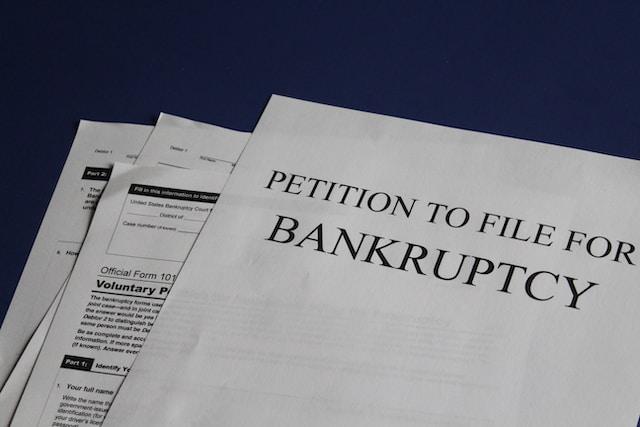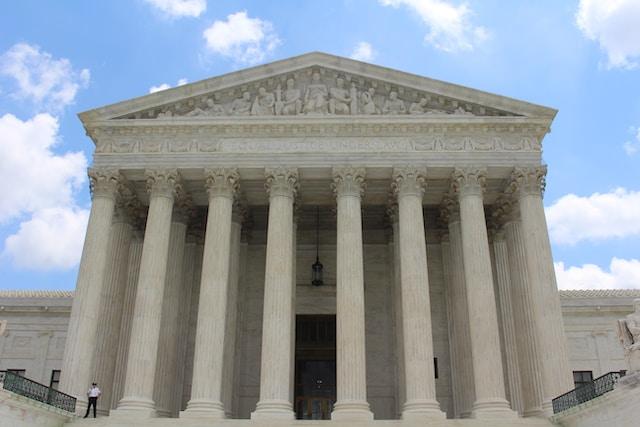What is S-Corp Bankruptcy (and is Company Officer Liable for Debts)?
Our product recommendations are made independently, but we may earn affiliate commissions if you use a link on this page.
Starting a small business can be a dream come true for many people, however, when the business fails to be profitable, it can be overwhelming. This is likely the case when it comes to those who are also trying to pay their expenses along with keeping the company afloat.
When you have registered or changed your LLC to an S-Corp, the options for what to do when the company is struggling can seem daunting. While many businesses turn to bankruptcy, it is important to understand what this means.
Are you curious about what an S-Corp bankruptcy is and whether or not a company officer is liable for debts? Read on below to learn more.

What is an S-Corp?
When it comes to the different types of business structures, an S-Corporation is one of the most common types people choose for their small business. The reason for this is because of the option of having taxation become pass-through.
In a pass-through taxation business, the federal taxes are not filed by the company but instead are filed through the shareholders who earn the profits. Because of this, the company is not liable for filing federal income taxes.
To be eligible for an S-Corporation, the company is required to meet certain requirements such as:
- Fewer than 75 shareholders
- No nonresident aliens as shareholders
- Only has one class of stock
- Shareholders must be individuals and not corporations
Once you have established whether or not you can be an S-Corporation, you can go through the process of restructuring your small business.
What is S-Corp Bankruptcy?
Although most people enter into a business with the idea of becoming profitable, there are times that this does not happen. Because of this, many business owners are forced to consider their options when it comes to the company.
One option that may be considered especially if the debts and other liabilities become much more than assets is to file for bankruptcy. While this is typically advised as a last resort, there are some cases where this is inevitable.
S-Corporation bankruptcy means that the business has gotten to the point where it can no longer be operational in its current state. This is often the case when liabilities and debts have taken over and there is not a resolution in sight.
It is important to note that bankruptcy for an S-Corporation is treated very similarly to other types of corporate bankruptcy cases. Meaning that the filing process and obligations of both the owners and creditors remain the same.
In most cases, once the bankruptcy has been filed, all creditors are obligated to stop attempting to collect any debt that the business may owe. This is typically called a stay where no attempt can be made to collect the debt to allow the bankruptcy court to decide if bankruptcy is the only option for the small business.

What are the Different Types of Bankruptcy for S-Corps?
Like for other corporations and businesses, there are several types of bankruptcy that can be filed depending on the individual situation. When you are forced to take this step for yourself, then you may need to find legal representation to help you sort through which one you should file.
Are you wondering what different types of Bankruptcy filings exist for S-Corporations? Keep reading below to find out.
Chapter 7
When a company chooses to file a Chapter 7 bankruptcy, this means that they have decided to completely dissolve the business. In these types of cases, the business assets are liquidated and the business is closed down permanently.
When the assets are liquidated in a Chapter 7 bankruptcy case, the money made from the sale of these assets typically goes to the creditors to whom the business owes money. This is one of the best ways for the debts to get paid without it falling to the various shareholders.
It is important to understand that when you file for Chapter 7 bankruptcy, you ultimately lose control of the business overall. This is because a trustee is put in charge of ensuring that all assets that can be sold off, will be sold off to pay outstanding debts.
Chapter 11
A Chapter 11 bankruptcy is also another common type of bankruptcy for S-Corporations especially those who would like the option of continuing to run their business. This type of bankruptcy allows the small business to restructure the company instead of just liquidating and shutting down.
One reason some companies choose to file for Chapter 11 bankruptcy is that they have the option of restructuring and keeping the business operational. This means that instead of liquidating their assets, they can instead keep control and work on a plan to pay off various creditors.
It is important to note that a Chapter 11 bankruptcy is considered to be the most expensive type since businesses must undergo a reorganization plan. However, if the business owners and shareholders wish to keep the company operational, this may be the only option available.
How Does Bankruptcy Affect Shareholders?
Understanding the effects that bankruptcy has on shareholders can be somewhat complicated since there are many different types and filing procedures at play. It is important to keep in mind that if your corporation is facing bankruptcy, you should always work with an attorney to make sure everything is done correctly.
One of the most common questions that business owners wonder when it comes to filing bankruptcy is how the case will affect shareholders. This can be a rather complicated question since the answer depends on a variety of factors.
For the most part, shareholders are typically directly affected by an S-Corporation filing for bankruptcy. This is because, as previously mentioned, this type of business entity means that the obligation of filing taxes lies directly with the shareholders and not the company itself.
Since this is the case, shareholders can be held liable for any income that is made before, during, and after a bankruptcy has been filed. This often includes the income made in selling off the assets to repay creditors.

Are Company Officers Liable for Debts When Bankruptcy is Filed in an S-Corp?
It is important to keep in mind that an S-Corporation is owned by a group of shareholders and is typically operated by company officers and/or a board of directors. Because of this, while shareholders may be responsible for paying any income that is made during a bankruptcy, some company officers may be as well.
Company officers can be held liable for debts when bankruptcy is filed in an S-Corp for a few different reasons. Some of these reasons are those that include whether or not fraud was involved.
In most cases, company officers can be held accountable for paying any type of taxes that are withheld from employee salaries. In addition, they can be held liable for any fines or penalties that are applied to those companies that are deemed to be fraudulent in nature.
All in all, if you are worried about your personal liability in an S-Corporation small business that is headed toward bankruptcy, then you should seek legal advice. This should be done before filing for bankruptcy so you will know what to expect.
What Are the Pros and Cons of Filing Bankruptcy as an S-Corp?
While bankruptcy as a whole is not considered to be something that business owners should do, if they can prevent it, it is sometimes inevitable. The important thing to keep in mind is that if you have to close down your business, you should know what your options are.
If you are curious about the advantages and disadvantages of filing bankruptcy as an S-Corp, keep reading below.
Pros
One of the biggest advantages of closing down a business through bankruptcy is that it helps creditors and others see your business as transparently as possible. This means that when you file for bankruptcy, creditors are typically privy to what you are doing and the reasons for it.
This will often keep them from attempting to come after you because they think you are trying to sham them. In most cases, bankruptcy allows a business to use any assets they own as a way to pay creditors off instead of letting them attempt other means of collection.
Cons
Depending on which type of bankruptcy you choose to file, you should keep in mind that some of the control you once had may be lost. This is especially true if you file for Chapter 7 bankruptcy where a trustee is put in place to liquidate assets.
Another disadvantage to filing bankruptcy that you should consider is that there is often a financial obligation that is typically due when filing for bankruptcy. Since the company is already going through financial difficulties, it may not be prudent to obligate yourself to even more expenses with the bankruptcy filing fees.
Reference Legal Explanations
If you use any of the definitions, information, or data presented on Legal Explanations, please copy the link or reference below to properly credit us as the reference source. Thank you!
-
<a href="https://legal-explanations.com/blog/what-is-s-corp-bankruptcy-and-is-company-officer-liable-for-debts/">What is S-Corp Bankruptcy (and is Company Officer Liable for Debts)?</a>
-
"What is S-Corp Bankruptcy (and is Company Officer Liable for Debts)?". Legal Explanations. Accessed on December 14, 2024. https://legal-explanations.com/blog/what-is-s-corp-bankruptcy-and-is-company-officer-liable-for-debts/.
-
"What is S-Corp Bankruptcy (and is Company Officer Liable for Debts)?". Legal Explanations, https://legal-explanations.com/blog/what-is-s-corp-bankruptcy-and-is-company-officer-liable-for-debts/. Accessed 14 December, 2024
-
What is S-Corp Bankruptcy (and is Company Officer Liable for Debts)?. Legal Explanations. Retrieved from https://legal-explanations.com/blog/what-is-s-corp-bankruptcy-and-is-company-officer-liable-for-debts/.